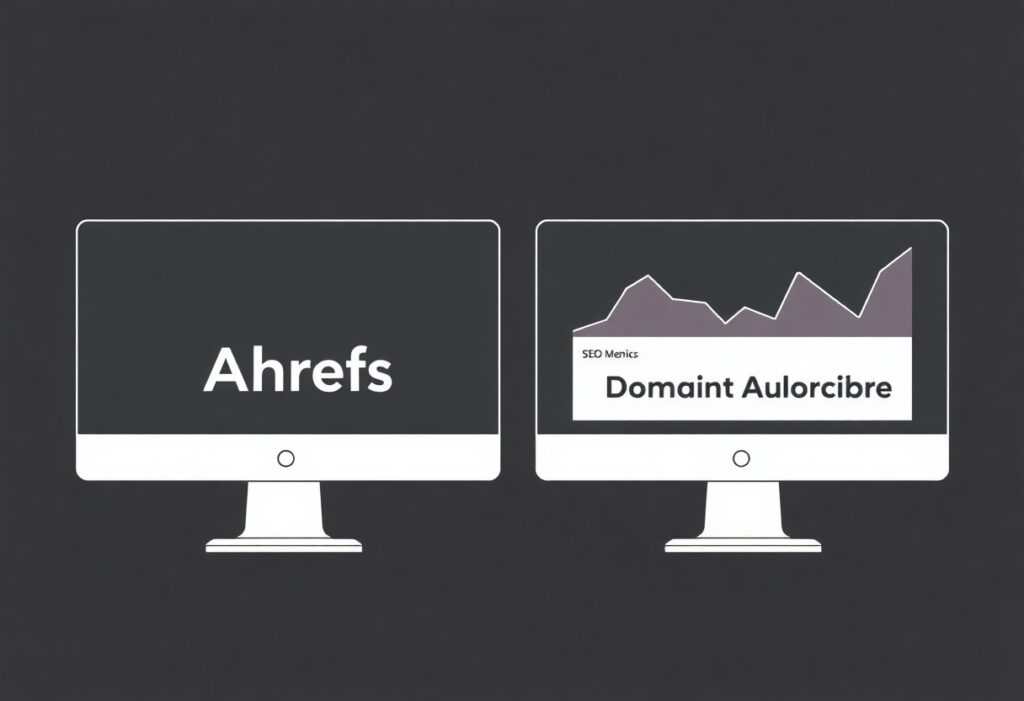Length matters when it comes to URL Length and SEO. If you’re aiming to improve your website’s visibility, understanding how URL Length affects search engine rankings is vital for your success. Shorter URLs tend to perform better in search results, appealing to both users and search engines alike. On the other hand, overly long URLs can hinder your SEO efforts, causing potential visitors to overlook your content altogether. By optimizing your URL Length, you not only increase readability but also enhance user experience and boost your rankings. So, let’s investigate deeper into the strategies you can use to perfect your URL Length for better SEO outcomes.
The Importance of URL Length in SEO
The URL length plays a significant role in your SEO strategy. Shorter URLs are typically easier for both users and search engines to understand. If you limit your URL length, you enhance the overall readability, which can lead to better click-through rates. Additionally, concise URLs provide a clearer picture of your page’s content. This clarity assists search engines in indexing your website effectively, making URL length an important factor to consider for improving your search engine rankings.
Impact on User Experience
At the heart of user experience is the URL’s ability to communicate information quickly. When users see a long, convoluted URL, they are less likely to trust it. Instead, they gravitate towards shorter and more straightforward links. This trust can lead to higher engagement and conversions. Consequently, effective URL length can enhance your site’s usability and overall performance.
Relevance to Search Engine Algorithms
Search engines like Google consider URL length as part of their ranking criteria. A URL that is excessively long may be perceived as spammy, which can negatively impact your SEO ranking. Search engines prefer URLs that are concise and contain relevant keywords. To improve visibility, aim for URLs that maintain relevant words while avoiding unnecessary complexity.
But, understanding the balance between SEO and user experience is key. A well-structured URL can improve your website’s performance significantly. Utilizing beneficial keywords within a shorter URL enhances its relevance in search results. Your focus should be on keeping URLs short, while ensuring they remain descriptive. This approach not only helps your site rank higher but also fosters trust with potential visitors. By optimizing your URL length, you’re taking actionable steps towards creating a user-friendly and SEO-optimized webpage, a practice emphasized by Rank Authority.
Ideal URL Length for SEO
Even though there is no one-size-fits-all answer, the ideal URL length for SEO typically ranges from 50 to 60 characters. This length helps make your URL concise while still conveying crucial information. A well-structured URL not only aids search engines in crawling your site but also encourages user engagement, leading to lower bounce rates. Aim for clarity and relevance in your URLs to ensure they are both user- and SEO-friendly. Note, an optimized URL can enhance your positioning on search engine results pages.
Recommended URL Length Guidelines
After analyzing various studies, experts recommend keeping your URL length under 60 characters for optimal SEO performance. Shorter URLs are easier for users to remember and share, which can lead to improved click-through rates. While keeping the URL brief, ensure that it is descriptive enough to provide context about the page content. Incorporating relevant keywords within this length can further boost your chances of ranking well.
Impact of Excessively Long URLs
An excessively long URL length can negatively affect your SEO strategy. Long URLs tend to be uninviting, leading to lower click-through rates and higher bounce rates. If a URL is too long, search engines may truncate it in results, causing users to overlook important information. This can result in less organic traffic to your website and hinder your overall ranking.
Ideal URLs should be concise yet informative, as excessively long URLs can lead to confusion and misinterpretation. As a rule of thumb, keep your URLs under 60 characters to improve readability. Long URLs often confuse users, which can significantly reduce click-through rates. Additionally, search engines may struggle to parse long URLs, making them less likely to display your page prominently. By avoiding long URLs, you create a better user experience while ensuring your content is easily accessible. This enhancement can ultimately foster more organic traffic and a stronger online presence for your website.
URL Length Structure and Keywords
If you want your website to rank better on search engines, it’s imperative to understand the relationship between URL length and keywords. A well-structured URL can significantly enhance your site’s visibility, making it easier for both users and search engines to interpret your content. Aim for URLs that are concise yet descriptive, as these elements contribute to improved click-through rates and better indexing. Utilizing relevant keywords in your URLs not only informs users about the content but also signals to search engines the context of your page, enhancing your SEO efforts.
Incorporating Keywords Effectively
By placing your primary keywords in the URL, you signal to search engines what your webpage is about. Ensure that your keywords are relevant to the content, as this enhances the likelihood of appearing in pertinent search results. This practice helps users understand the context of their search and encourages clicks. However, avoid keyword stuffing, as it can lead to penalties from search engines and damage your overall SEO strategy.
Balancing Length and Keyword Relevance
Incorporating the right keywords while maintaining an optimal URL length is vital for SEO. Shorter URLs are generally preferred, but they shouldn’t compromise the inclusion of imperative keywords. Aim for URLs that are clear and meaningful. This clarity helps in achieving higher rankings and a better user experience. Striking a balance means making your URLs both user-friendly and keyword-rich.
Effectively combining the benefits of an appropriate URL length with relevant keywords can significantly enhance your site’s SEO performance. A well-optimized URL should ideally be under 60 characters, maximizing clarity while still incorporating vital search terms. Doing this not only improves user engagement but also aids search engine crawlers in understanding your page’s content. However, be cautious, as excessively lengthy URLs can lead to truncation in search results, reducing their effectiveness. Ultimately, your goal should be to craft URLs that enhance both SEO visibility and user experience, ensuring your content stands out in the crowded digital landscape.

URL Shortening Techniques – URL Length
Unlike traditional long URLs, utilizing URL shortening techniques can significantly enhance your SEO efforts. Shortened URLs not only perform better in terms of user engagement but also can improve your click-through rates. While these links may seem less informative, they simplify sharing and leave a clean visual impression on your audience. Overall, it’s crucial to balance between brevity and clarity, ensuring that your URLs remain descriptive where possible, even when kept short.
When to Use URL Shorteners
The best time to consider URL shorteners is when you are sharing links on social media platforms, where character limits can impact your message. Additionally, using them in email campaigns can help maintain a clean appearance, directing your audience without overwhelming them with long URLs. Ultimately, the *goal is to streamline user experience* while directing attention to your content effectively.
Potential SEO Pitfalls
Any time you shorten URLs, it’s crucial to be aware of the potential pitfalls that can arise. Over-relying on URL shorteners may lead to the loss of valuable information, which could negatively impact your SEO strategy.
Shorteners may hide keywords that contribute to your URL length effectiveness, ultimately reducing your search visibility. Moreover, if the link shortener service goes down or the link expires, your traffic will suffer. Additionally, some users may distrust shortened URLs due to concerns about spam. As you embrace the use of URL length techniques, consider balancing both shortened links and descriptive ones to retain crucial keywords and user trust.

Measuring URL Performance
To effectively measure URL length performance, you need to analyze various metrics that contribute to your site’s SEO. Your focus should be on the impact that URL length has on your page’s visibility and user engagement. By evaluating data such as click-through rate, bounce rate, and organic traffic, you can determine how effectively your URLs are performing and identify areas for improvement. This data will help enhance your overall SEO strategy, ensuring your pages are consistently ranking high on search engine results pages.
Tools for Analyzing URL Metrics
Performance metrics are vital for understanding the effectiveness of your URL lengths. Utilize tools such as Google Analytics, SEMrush, or Moz to gather data on your URLs. These tools provide insights into user engagement rates, traffic sources, and crawl errors, helping you pinpoint which URLs are performing well and which need adjusting. Having access to this information allows you to optimize your URL structures for the best results, resulting in improved search engine rankings and better user experience.
Interpreting Data for SEO Strategy
Tools can help you make sense of the data collected and guide your SEO strategy. When interpreting metrics, focus on understanding how URL length correlates with user behavior. For example, shorter URLs tend to perform better in search results, leading to higher click-through rates.
Understanding your audience is key to optimizing your URLs effectively. Start by evaluating your data on URL length, traffic sources, and user engagement. Pay attention to patterns that indicate successful URLs versus those that do not perform well. If you find that longer URLs have a significantly lower bounce rate or higher engagement, it might be worth investigating further. Prioritize refining your URLs based on these insights, as this will enhance your overall SEO strategy, ultimately benefiting your visibility and rankings on search engines. By leveraging tools such as Rank Authority, you can simplify this process and achieve better results faster.

Best Practices for Optimizing URLs – URL Length
Your focus should be on optimizing your URL length for better SEO performance. Ensuring your URLs are both concise and descriptive can significantly affect your search visibility. Aim for URLs that are clear, unique, and include relevant keywords to help search engines understand your content better. Additionally, utilizing hyphens to separate words will improve readability and make your URLs user-friendly. Ultimately, a thoughtful approach to URL length can enhance your site’s overall search engine ranking at Rank Authority.
Consistency and Readability
Above all, maintaining consistency in your URLs enhances their readability and improves user experience. Stick to a standard format that includes relevant keywords for each page. This practice allows users to quickly ascertain what to expect when clicking on your links. Ultimately, a clear and consistent approach to URL structure leads to better indexing by search engines.
Avoiding Common Mistakes
Avoiding common mistakes is critical for optimizing URL length. Many websites struggle because they use complex or overly long URLs, making it difficult for users and search engines alike to navigate.
Due to this complexity, it’s crucial to focus on creating simple yet effective URLs. Ensure that you avoid using special characters or numerous parameters, as they can make URLs lengthy and less appealing. Moreover, don’t forget to use lowercase letters consistently, as mixed-case URLs can lead to duplicate content issues. By focusing on clear, simple, and SEO-friendly structure, you’ll not only enhance your URL length but also foster improved visibility through Rank Authority, making it easier for users to navigate your content.
Final Words
The URL length plays a significant role in your SEO strategy. When optimizing your website, keep your URLs concise and relevant. Shorter URLs tend to perform better in search engines, making it easier for users to share and remember them. Additionally, consider incorporating your targeted keywords within the URL to enhance your rankings further. As you refine your approach, use tools and insights from Rank Authority to improve your website’s visibility and drive more traffic. By paying attention to URL length, you can positively impact your overall SEO success.

Sign Up for Free!
One-Click Fully Automated SEO.
Boost Rankings, and Increase Traffic.
Instantly Optimize Your Site.
- No Coding
- No Credit Card Required
- One Click Setup













